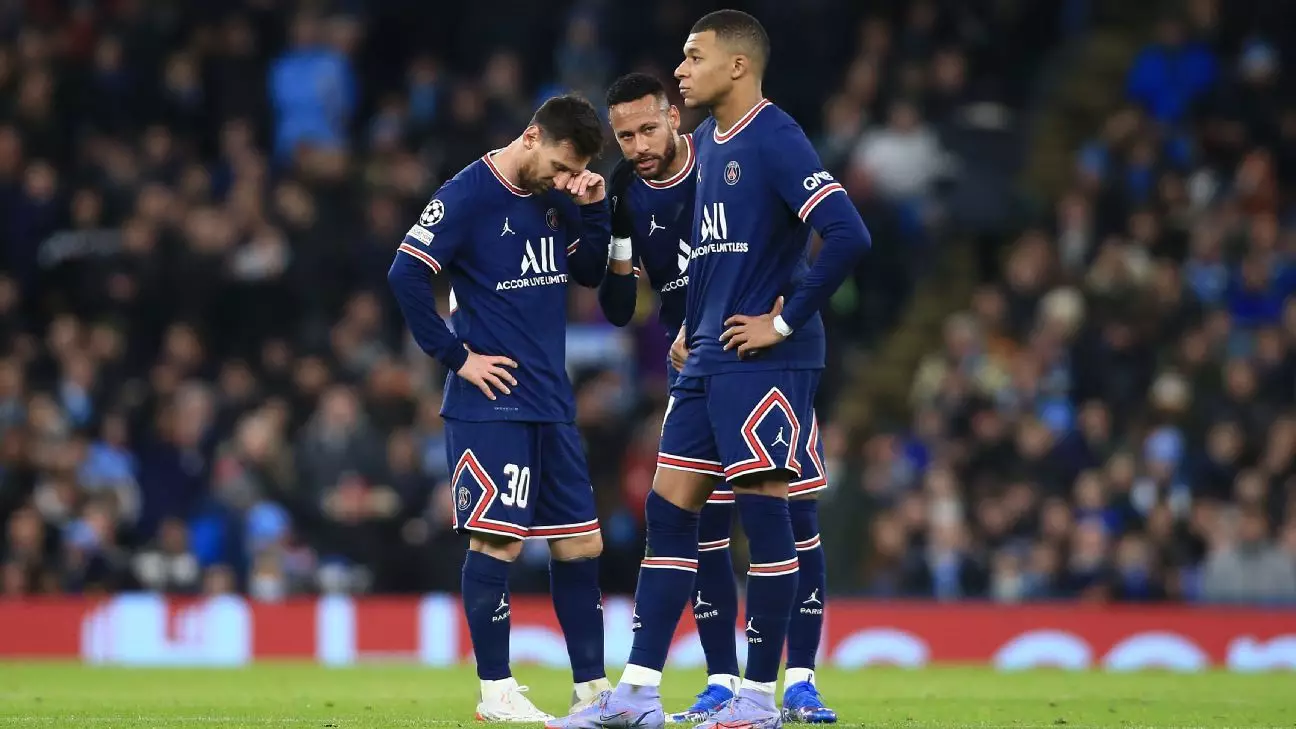In a recent podcast appearance, Brazilian striker Neymar reflected on his time at Paris Saint-Germain (PSG) and highlighted some intriguing dynamics of team chemistry and ego among star players. His remarks, prompted by questions from World Cup champion Romário, uncovered layers of feelings related to Kylian Mbappé’s reaction to the arrival of Lionel Messi at PSG in August 2021. With keen insights into interpersonal relationships within elite sports, Neymar’s commentary not only delves into the psyche of high-profile athletes but also underlines the critical aspects of teamwork that can make or break a club’s fortune.
Neymar hinted at a shift in the ambiance of the locker room after Messi’s recruitment. He candidly asserted that Mbappé, his once-close ally, became “a little jealous.” This sentiment echoes a common narrative in professional sports where the arrival of new ‘superstar’ talent can create friction. Neymar’s acknowledgment of some “little fights” he had with Mbappé suggests that the coexistence of multiple talent-driven personalities can lead to misunderstandings and conflict, even among friends. This level of emotional nuance is essential, as it indicates that behind the glamorous facade of top-tier football, there can lie a complex web of competitive energy.
One of Neymar’s more striking comments during his podcast segment concerned the issue of egos within the PSG squad. He stated, “It is good to have egos, but you have to know that you don’t play alone.” This reflects a critical understanding of team dynamics, especially in high-pressure situations such as the quest for the prestigious Champions League title—an endeavor that has long eluded PSG despite their heavyweight roster.
Neymar’s insights cast a spotlight on the notion that while individual talent is vital, collaboration is essential for achieving collective goals. Without willing teamwork, even the most gifted players can struggle to find the right synergy. His mention of big egos being “almost everywhere” in the team reveals a shared challenge in professional settings where competitive drives could overshadow collaboration. This perspective invites further exploration into how managers and coaching staff can foster environments that promote unity rather than rivalry among star athletes.
As Neymar continues to navigate his career, currently with Al Hilal under a cloud of injury-related uncertainty, he remains open to future possibilities, including a potential return to Brazilian football or even a stint in Major League Soccer (MLS). His current manager, Jorge Jesus, remarked that Neymar is “free to decide his future,” highlighting that the player still possesses significant agency despite the challenges he faces.
The transition period in Neymar’s career raises questions about adaptability and resilience in professional athletes. What does it mean for a player, once at the top of the game, to contend with injuries and shifts in their playing environment? His potential return to Brazil or opportunity to play in the MLS could rejuvenate not only his career but perhaps his passion for the game—a vital element for any athlete, especially after years of battling physical setbacks.
Neymar’s reflections on his experiences with Mbappé and Messi provide valuable insights into the workings of team sports, particularly in soccer, where individual brilliance must meld with collaborative effort. His narrative underscores the importance of managing egos and fostering cooperation among top-level talent, reminding us that even at the pinnacle of success, relationships, and communication remain fundamental components of achievement.
As Neymar contemplates his future, his journey becomes emblematic of the larger struggles many athletes face: maintaining peak performance against physical and emotional challenges. In an era where the game is increasingly glamorized, his candid insights shine a light on the less visible, yet equally crucial elements of teamwork, adaptation, and resilience.

